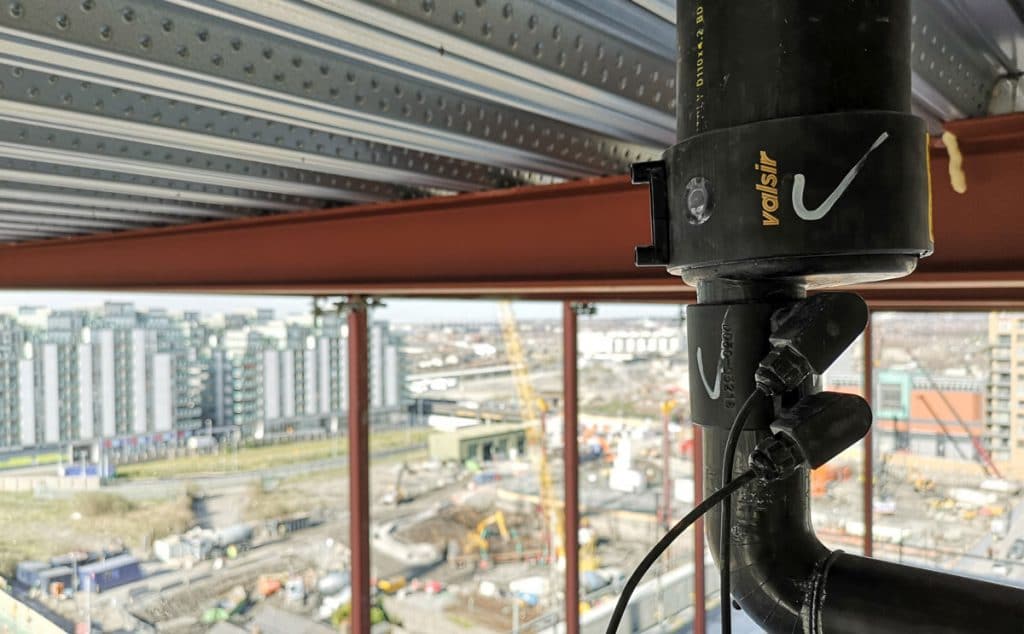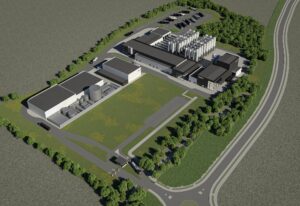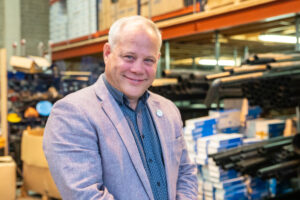If you’re initiating tender enquiries for your next project, discover why leading architecture firms and construction partners globally trust us as their expert in siphonic drainage solutions that provide suitable rainfall protection. You can trust us to deliver a complete end-to-end siphonic rainwater drainage system customised to your project.
Your Expert in Siphonic Drainage
From design to supply, installation, and maintenance, we invite tender enquiries to ensure a seamless collaboration from start to finish. Our comprehensive approach ensures your project is handled with expertise every step of the way
All our siphonic systems are designed by our in-house design team in full compliance with BS EN 12056 -3:2000 & BS EN 8490:2007. Our teams are trained, certified, and experienced in designing and installing leading brands, including Valsir Rainplus®, Terrain Hydromax®, and Blucher® Stainless Steel Siphonic Systems.
Capcon are Siphonic Specialists
Expertise and Track record
With our extensive portfolio, including the K2 Dublin Data Centre and Singapore Pharmaceutical Facility, you benefit from our proven expertise. Our expertise in siphonic drainage ensures unparalleled know-how on your site.
Excellence in Design and Production of Siphonic Drainage Solutions
We understand the value of bespoke design and use best-practice design technologies including BIM and 2D to deliver truly design-focused work. In our syphonic drainage systems, the horizontal collector pipe plays a crucial role by efficiently channeling water from multiple roof outlet drains into a single downpipe, utilizing the principle of vacuum to enhance drainage during heavy rainfall. Our prefabrication facility means we pre-fabricate drainage pipes off-site, in factory-controlled conditions, ensuring precision and accuracy while reducing waste significantly.
Installation and Support
With trained, certified, and experienced teams completing customised installation of all pipework, your project will be in safe hands with Capcon. It is also important to maintain older siphonic drainage systems, particularly those installed before 2000, to ensure they meet modern capacity standards and manage rainwater effectively. We offer a range of professional maintenance options, including planned preventative measures, specific repairs and survey services, as well as emergency call-outs where necessary.

What is a Siphonic Roof Drainage System?
A siphonic roof drainage system is a bespoke, engineered solution that utilises the power of a vertical-induced vacuum to create an efficient, high-velocity roof drainage solution.
The early siphonic systems were originally developed in Scandinavia in the 1960s, and has been in use in the UK and Ireland since the early 1990’s.
But what are the advantages of siphonic drainage?
- Pipes run horizontally within building envelope
- Reduces underground drainage requirements
- Up to 45% cost saving overall
- Exceptionally accurate design software
- Easy routing of rainwater from roof to desired discharge location, making system an ideal partner for rainwater harvesting
Offering a range of key advantages, it is seen by many as the most significant innovation in construction roofing technology within the last 25 years. From its high performance and space-saving properties to its capability to reduce infrastructure and plumbing maintenance, siphonic drainage can offer your projects so much. Architects also prefer it thanks to its renowned flexibility in design and sustainable values.
Interested in leveraging the advantages of siphonic drainage for your project? For tender enquiries and to learn more about how we can bring our siphonic drainage expertise to your next project, contact us today
Definition and Explanation
Siphonic drainage systems are a revolutionary type of drainage system designed to prevent air from entering the downpipes, allowing higher volumes of water to drain more quickly from flat roofs. This innovative technology relies on negative pressure to create a vacuum effect, which rapidly removes rainwater from rooftops. Unlike traditional drainage systems that rely on gravity, siphonic drainage systems are engineered to drain rainwater more efficiently, making them an ideal solution for buildings with flat or low-gradient roofs. By utilizing negative pressure, these systems can handle large volumes of water, ensuring that rainwater is swiftly and effectively removed from the roof surface.
How Siphonic Drainage Systems Work
Siphonic drainage systems operate by preventing air from entering the downpipes, creating a vacuum effect that efficiently sucks standing water into the drainage system. This is achieved through the use of baffle plates, which restrict air from entering the system. During low levels of rain, the system functions similarly to a gravity-based system. However, as rainfall increases and the water reaches a specific head level, the baffle plate only allows water to enter the system, creating negative pressure. This negative pressure then draws standing water into the drainage system, much like the process of emptying a fish tank. The result is a highly efficient drainage system that can handle significant volumes of rainwater with ease
Benefits of Siphonic Drainage
Siphonic drainage systems offer several significant benefits over traditional gravity drainage systems. One of the primary advantages is their efficiency in removing large volumes of rainwater using minimal rainwater drainage pipework. This efficiency translates into a typical cost saving of 20% to 25% compared to conventional gravity-based systems. Additionally, siphonic drainage systems reduce the risk of water accumulation on rooftops, which can lead to structural damage and other issues. By freeing up floor space and eliminating the need for internal underground drainage, these systems provide a more streamlined and cost-effective solution for managing rainwater.
Applications of Siphonic Drainage
Siphonic Roof Drainage Experts
Meet Donnacha Tobin
Find out how we can design and supply a bespoke siphonic drainage solution for your next project by speaking directly with our Divisional Director.






